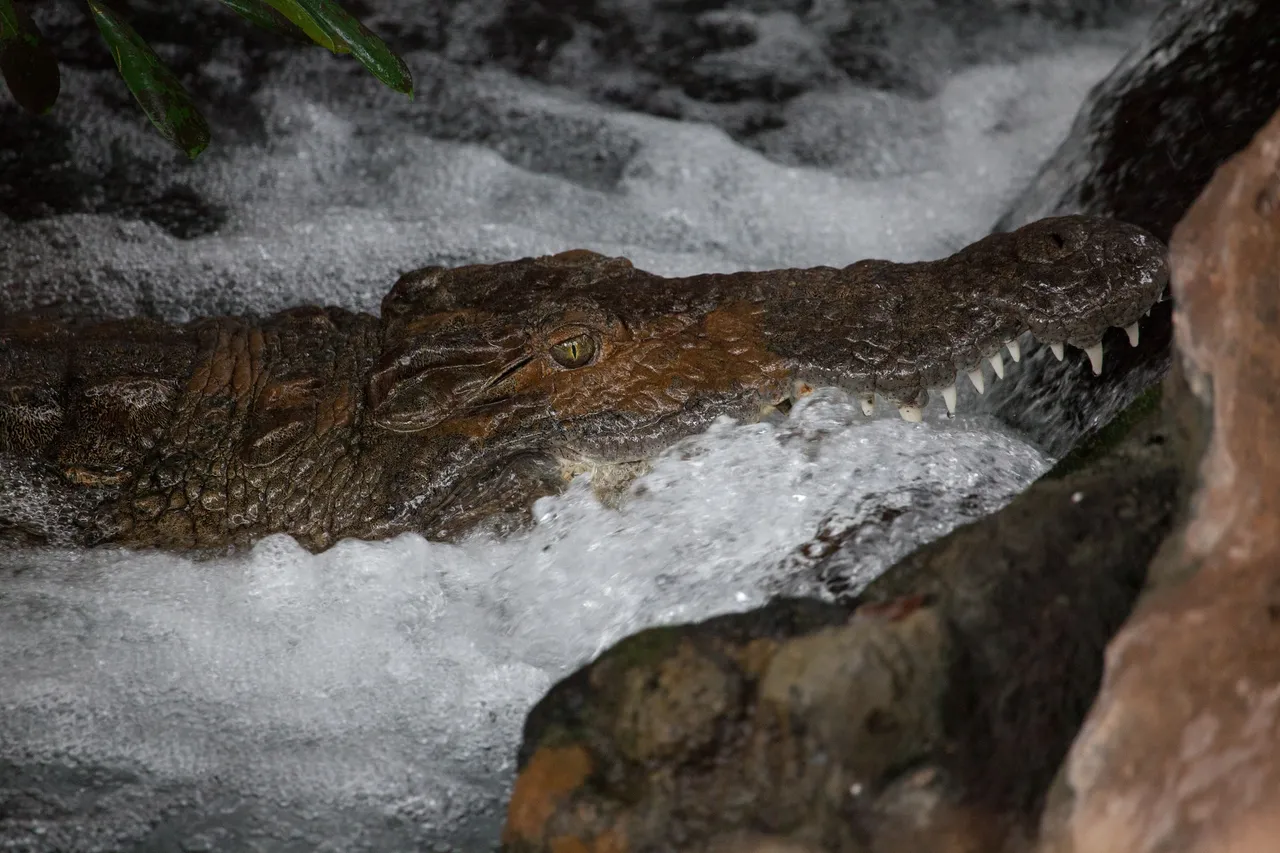
The was a sizeable Nile crocodile lying in wait at the bottom of some rapids, waiting for a fish to swim in its mouth.
Mzima Springs in Tsavo West National Park is one of Kenya’s most remarkable natural attractions, offering a serene oasis in the heart of the arid savannah. The springs are a series of crystal-clear pools that originate from underground streams fed by they Chyulu Hills, located about 50km away. This freshwater source supports a lush environment of palm trees and green vegetation, which stands in stark contrast to the surrounding dry, rugged landscape. Mzima Springs is not only a lifeline for local wildlife but also a prime viewing spot for visitors hoping to catch a glimpse of hippos, crocodiles, and various fish species that thrive in the pools. The park has even constructed underwater viewing chambers that allow visitors to observe the aquatic wildlife up close, providing a unique safari experience. We were led around the springs by an armed ranger. He pointed out several large crocodiles and hippos, although I think it was elephants that worried him the most. Luckily there were none in the vicinity this visit.
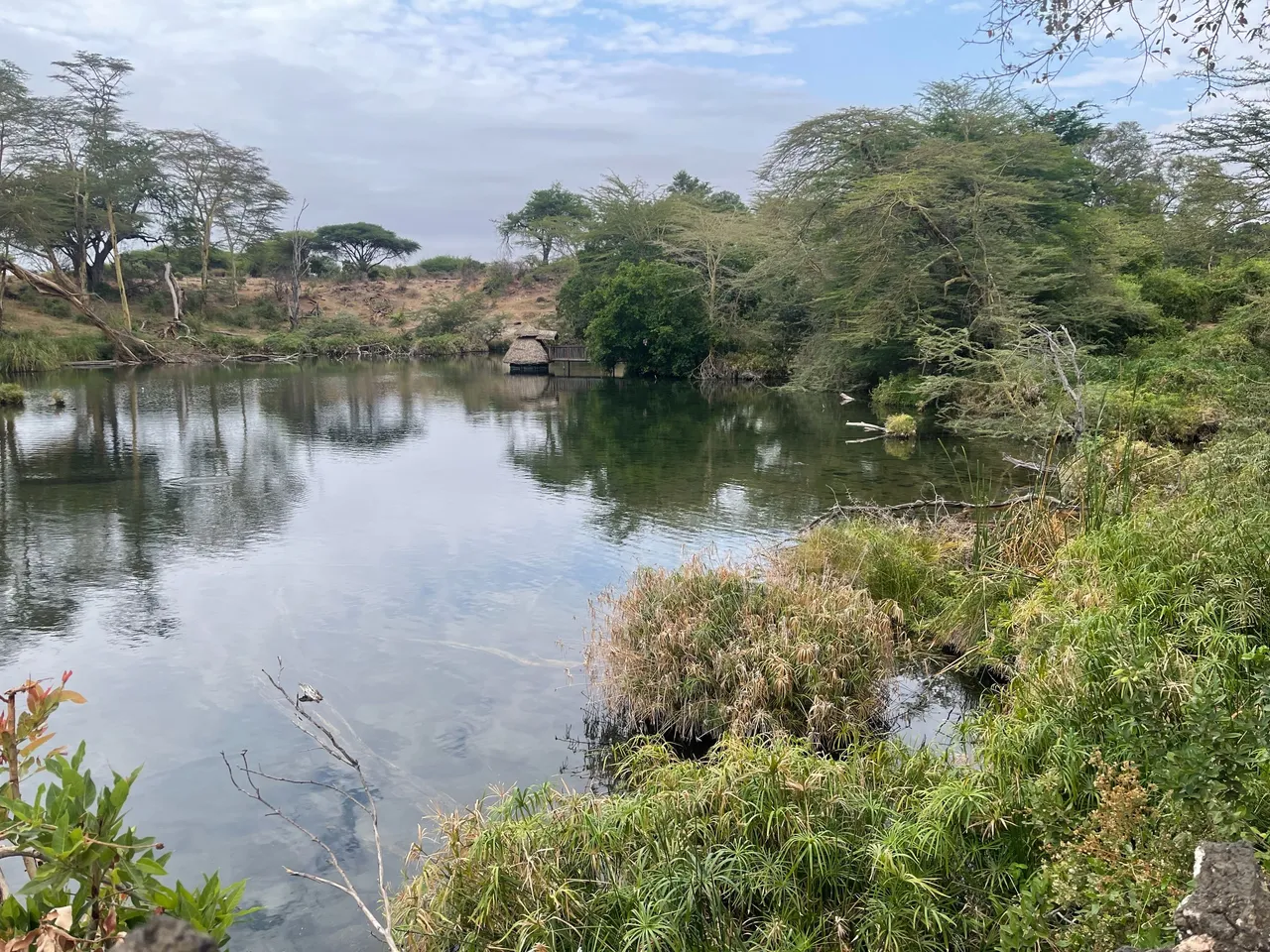
Talk about an oasis. The underwater hide can be seen in the upper middle of the photograph.
Beyond its beauty and tranquility, Mzima Springs plays an essential ecological role in the region. The springs provide water for a wide array of animals, including elephants, zebras, and buffalos, which come to drink at the edge of the pools, particularly during dry seasons. The area is also a haven for birdwatchers, as numerous bird species are attracted to the abundant water and vegetation. We did see our first fish eagle here this morning. Mzima Springs’ picturesque setting, abundant wildlife, and unique geological features make it one of the most visited and celebrated sites in Tsavo West National Park. As we were leaving a large group in several vehicles showed up. Another case of the early bird gets the worm.
Our afternoon game drive started before we even made it to our safari vehicle. I went for a little bird photography walkabout on the lodge grounds, as was pleased to find some yellow vented bulbuls. But then a small, unknown bird caught my eye. When I pointed the camera at it and looked through the telephoto lens I couldn't believe my eyes. It was a tiny Pearl-spotted owlet! The other group got to come over and see it on their way to meet James at the vehicle.
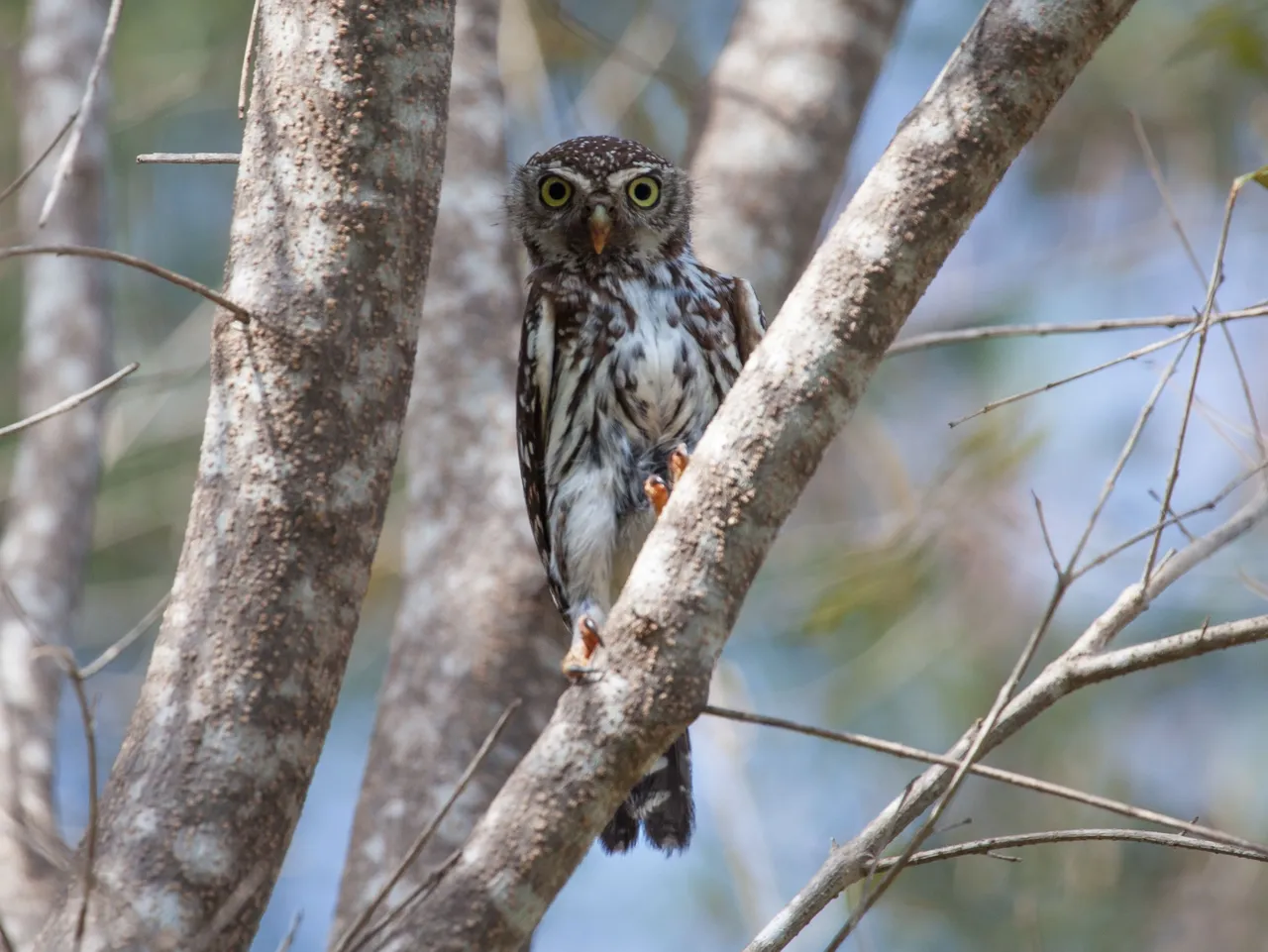
I can't believe we found a tiny owl! In this case it is a Pearl-spotted owlet.
Then we game drived our way to some of the local volcanic formations where Diane, Kevin, Janet and I tackled a hard charger climb up one of the cinder cones. It is one of the few places where you are allowed out of the vehicle in the park. Its a tough climb in the heat, but also because the cinder under foot slides you back every time you step forward. We all made though and were in high spirits as we made it back to the waiting car.
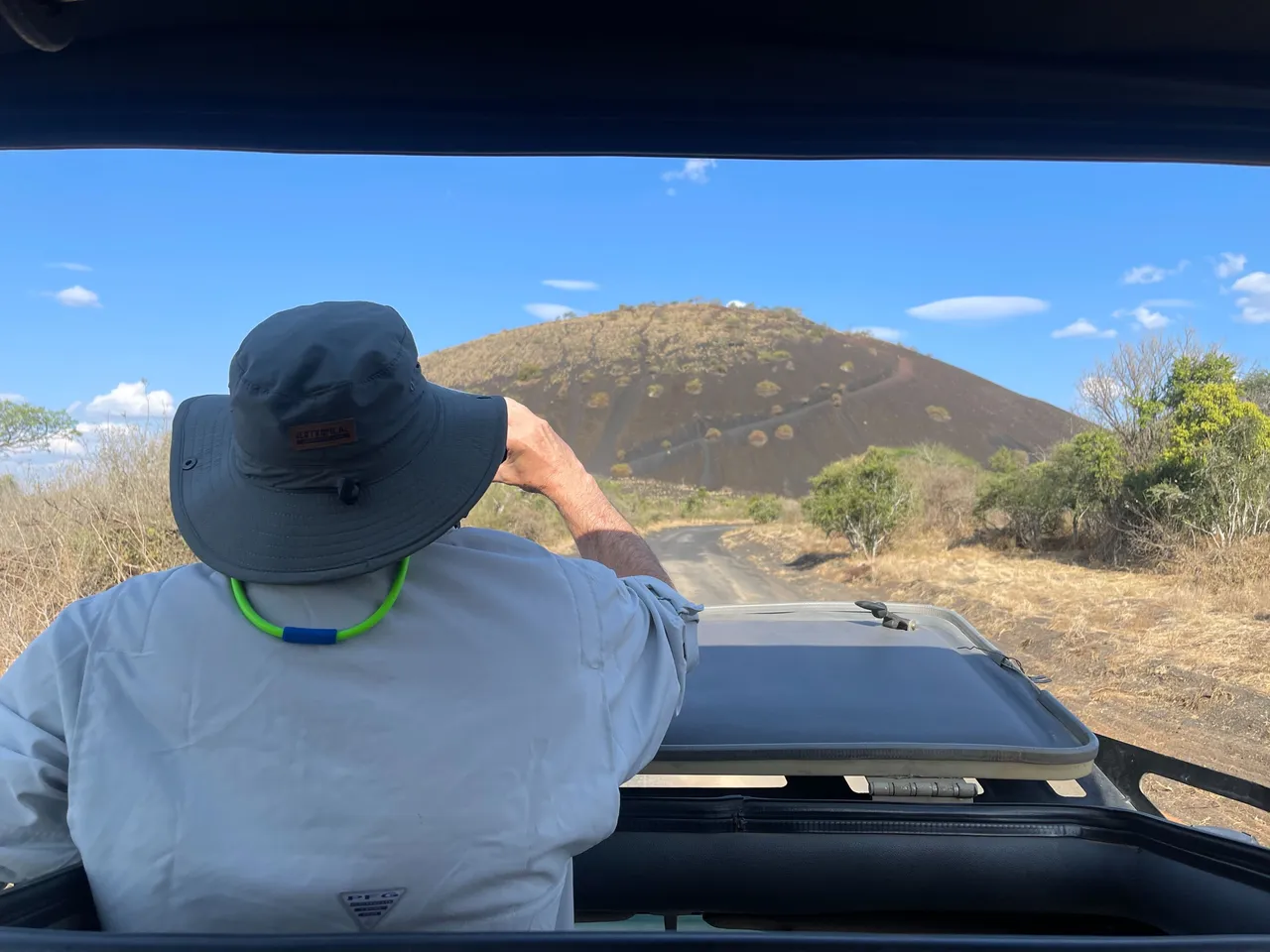
Wait, we are climbing up that huge mountain? - Kevin
We had a pleasant drive after that through scenic rocky passes and meandering creeks and waterholes. It wasn't until the final waterhole where we actually saw another vehicle. It is a great part of the Tsavo experience, that you can feel totally alone, out in the wild, like safaris of yesteryear.
Here are a few of the shots from the day.
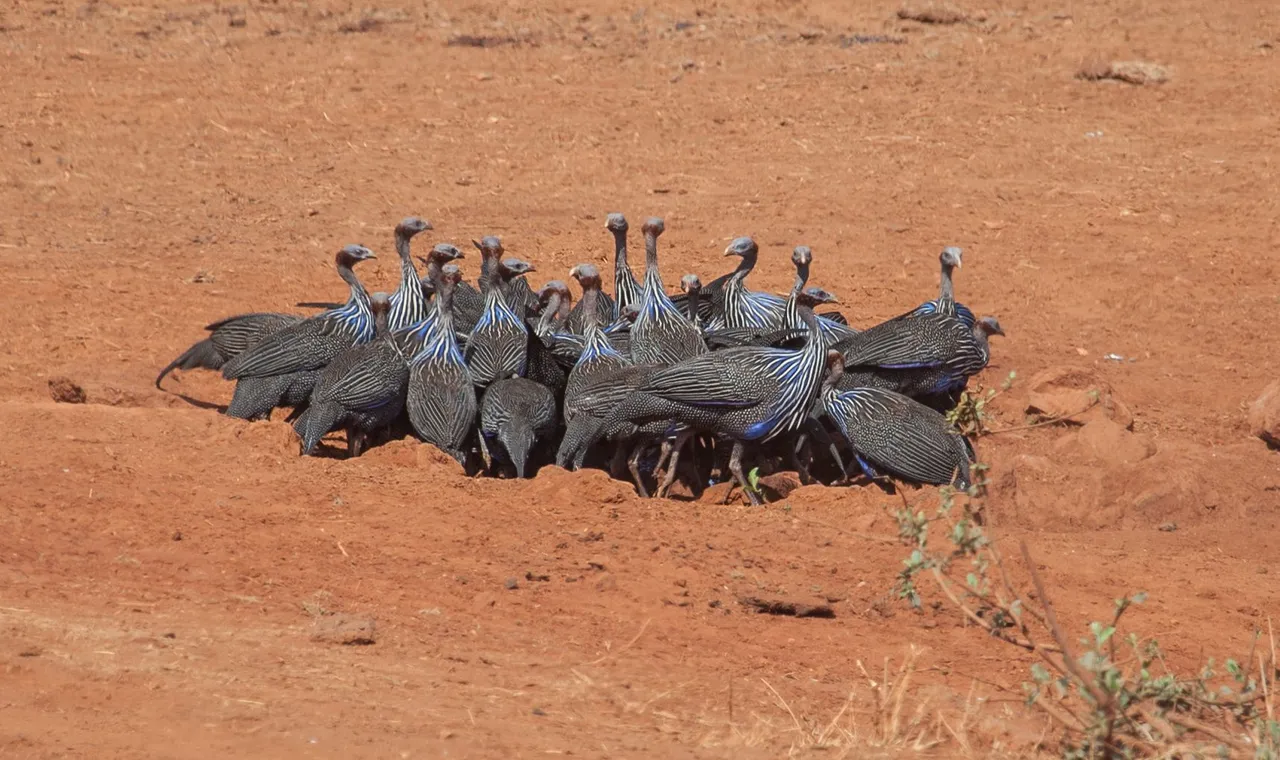
A flock of vulturine guinea fowl visit out water hole. They have some of the most intense blue feathers on their breast.
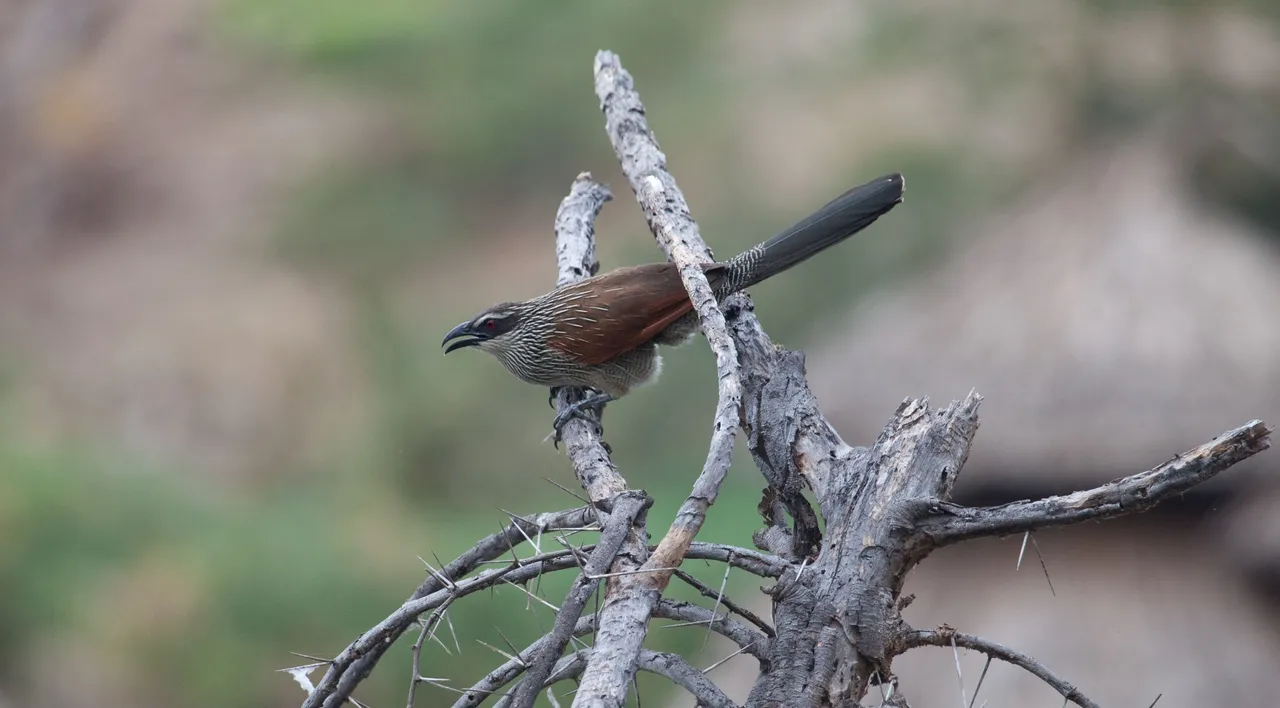
Doing a little birdwatching at the springs. This is a white-browed coucal.
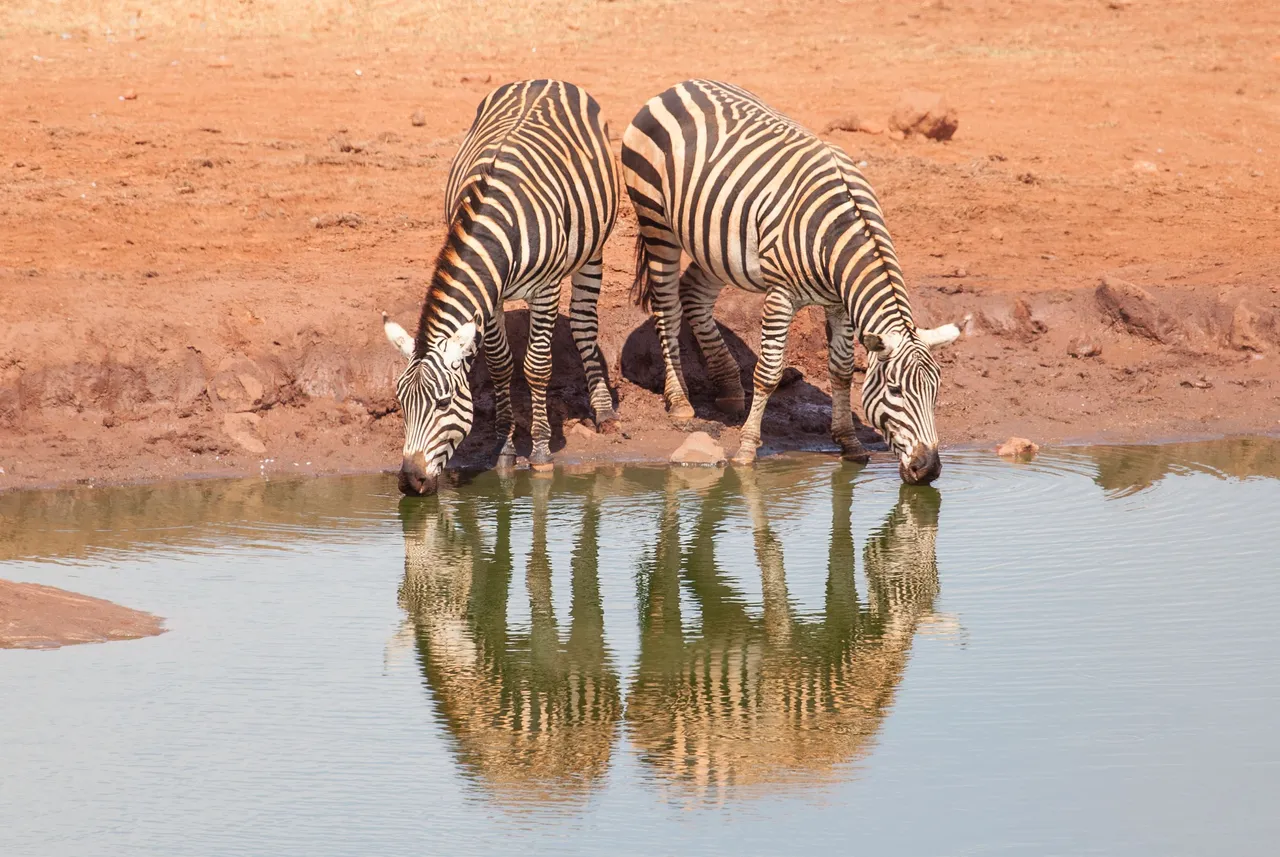
Zebras and their reflections.
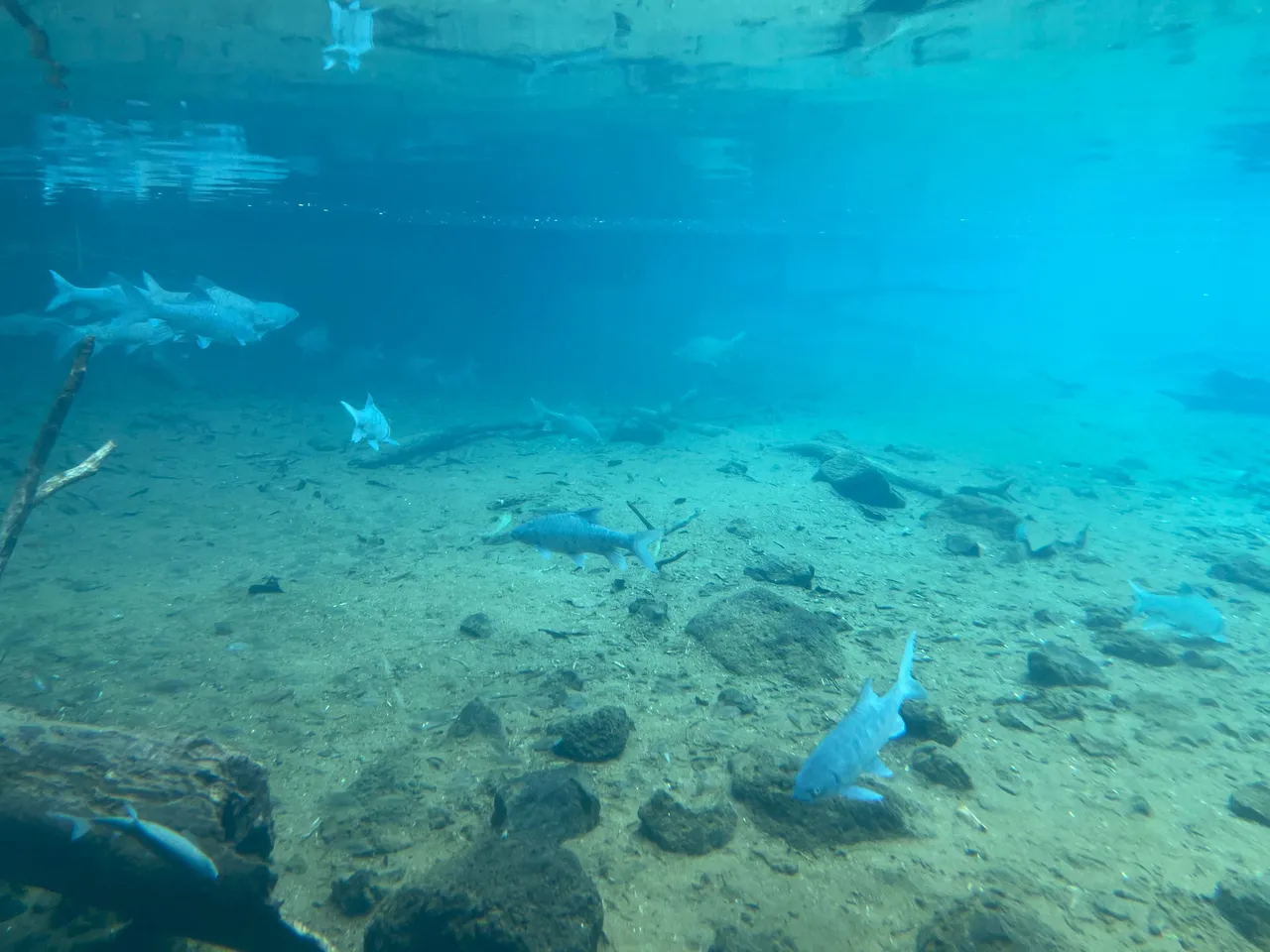
View under the water in the crystal clear waters of Mzima Springs.
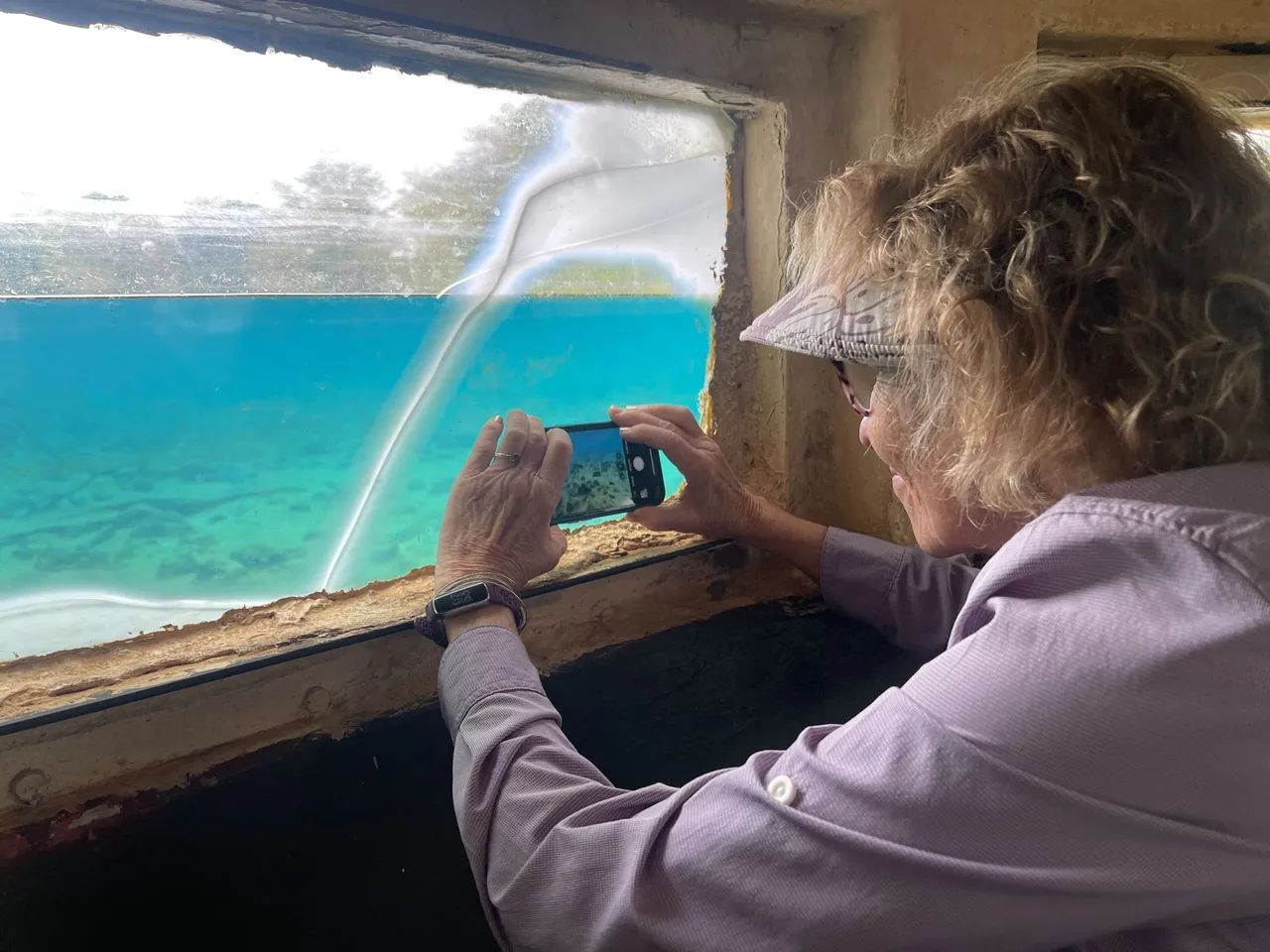
Diane checking out the underwater life from the hide built in Mzima Springs. The cracks were made from hippos fighting many years ago. Luckily it is still water tight.
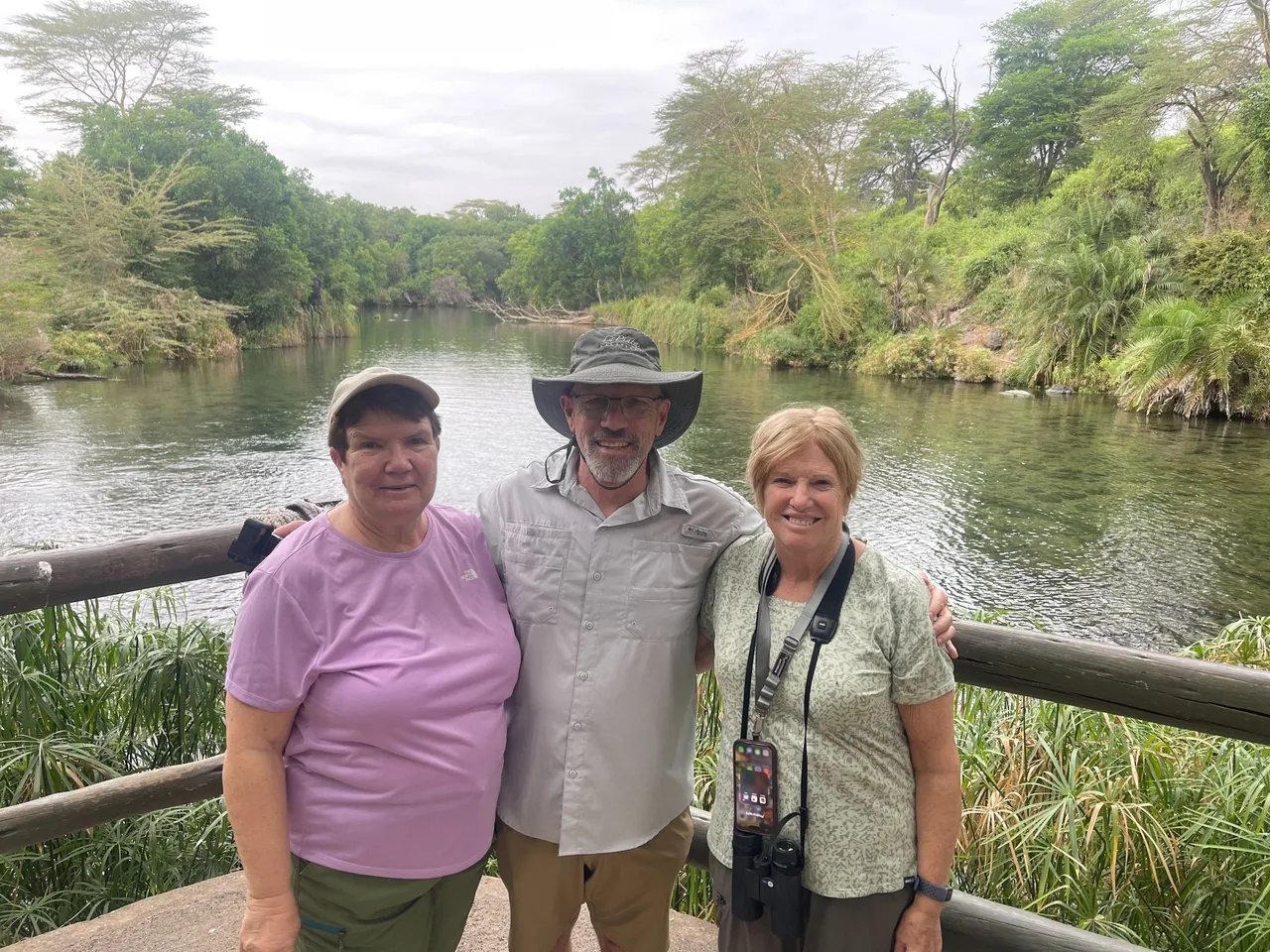
Patty, Kevin, and Janet enjoying the oasis of Mzima Springs.
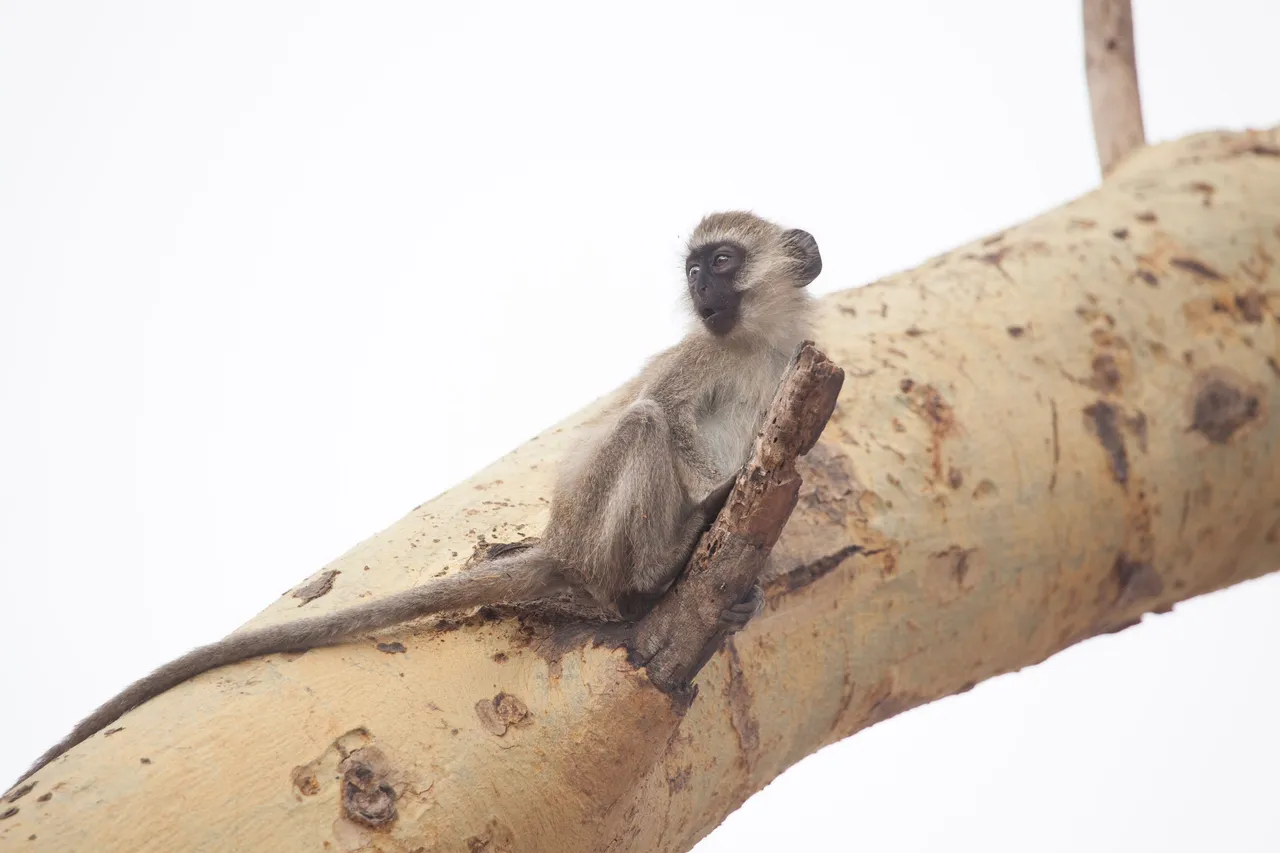
An adorable baby vervet monkey.
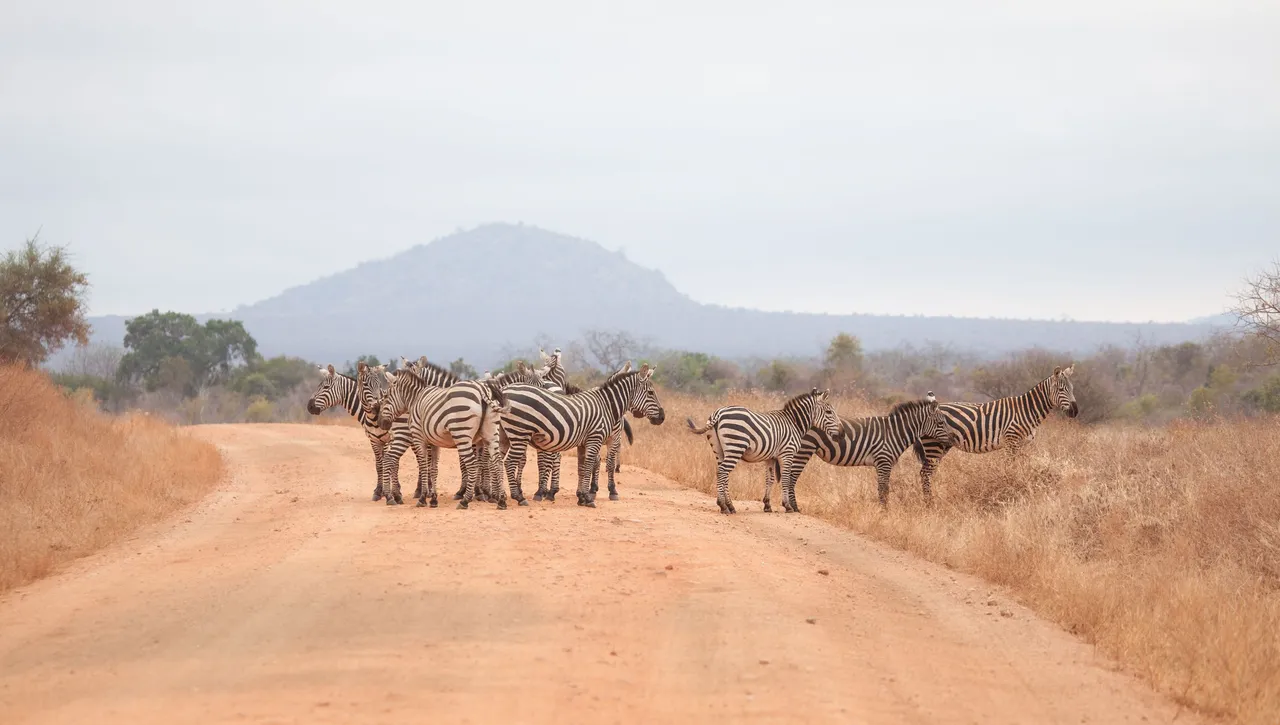
This is a safari traffic jam.
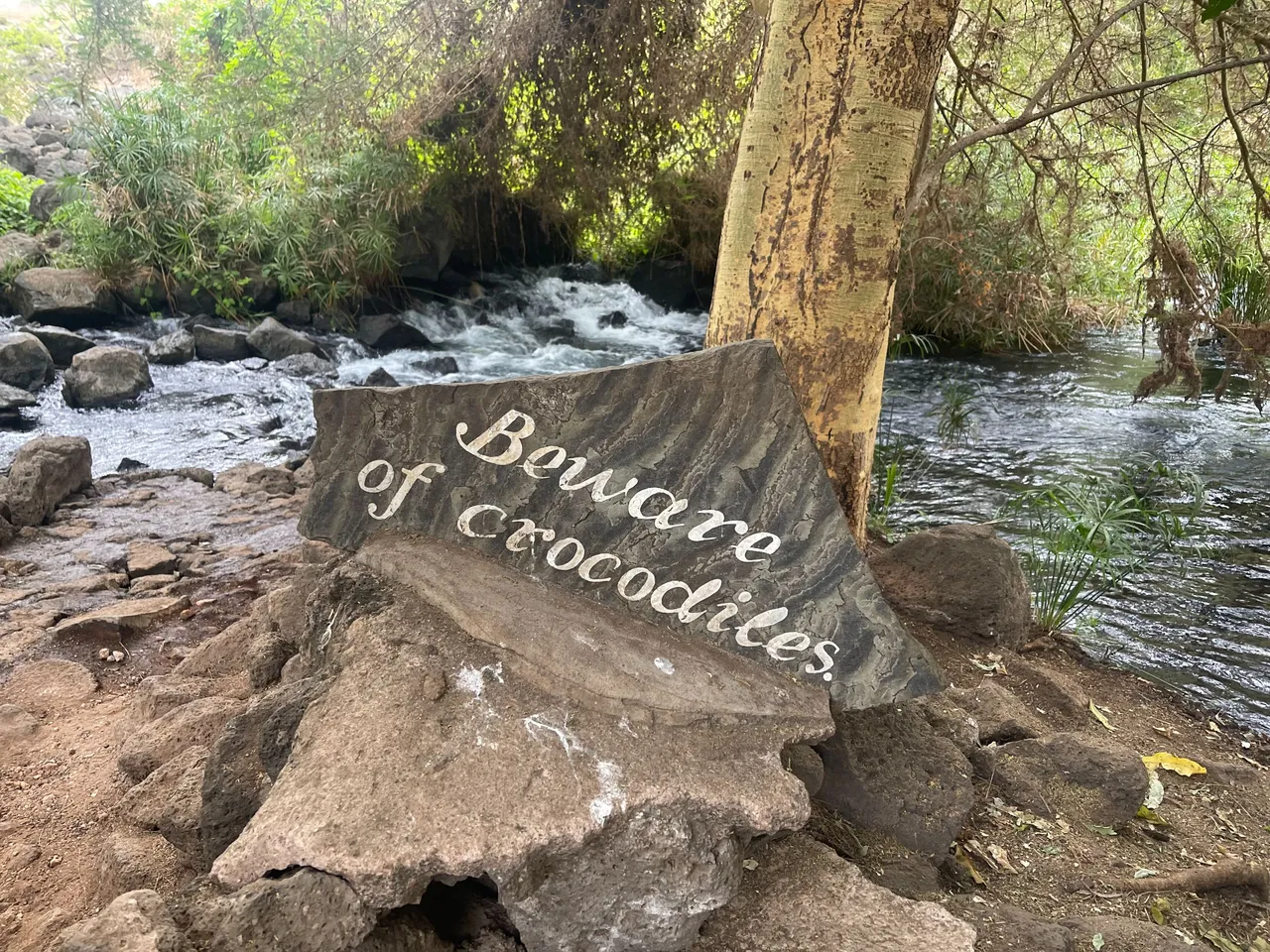
We did see several big crocodiles shortly after walking past this sign.
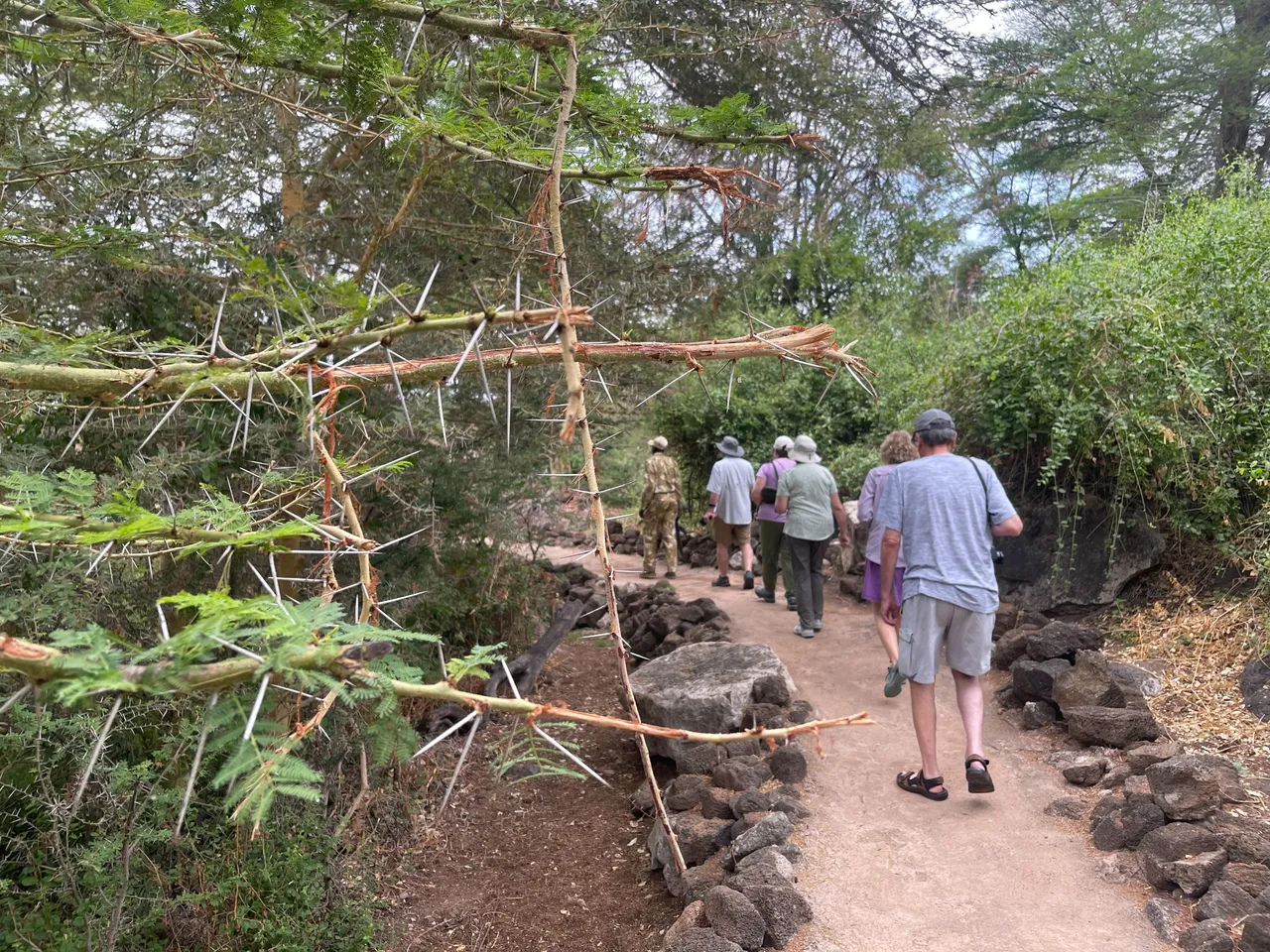
There was a nice path that the ranger led us on around the springs. The bushes lining the path looked like something you wouldn't venture off into.
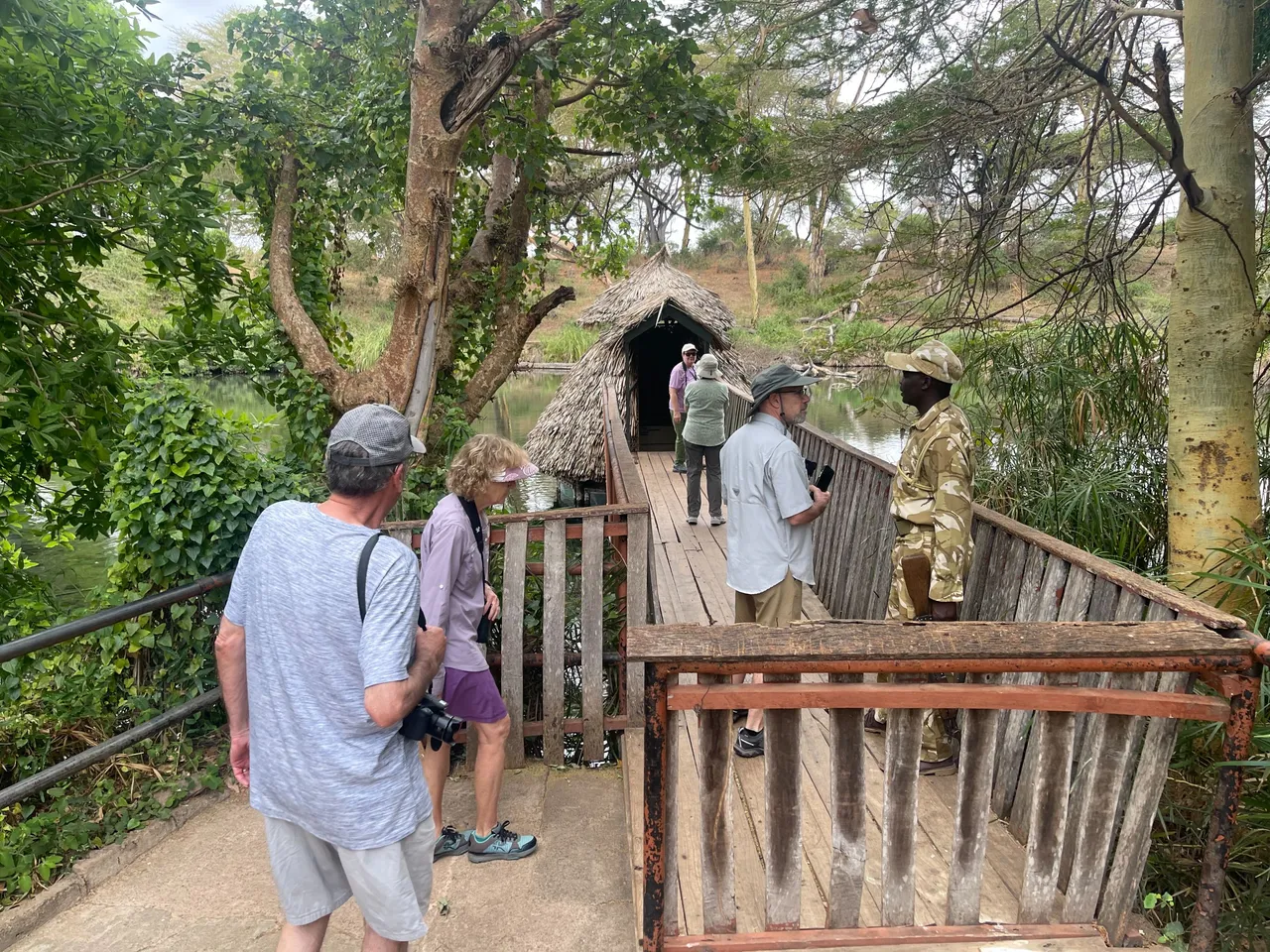
Out to the underwater hide.
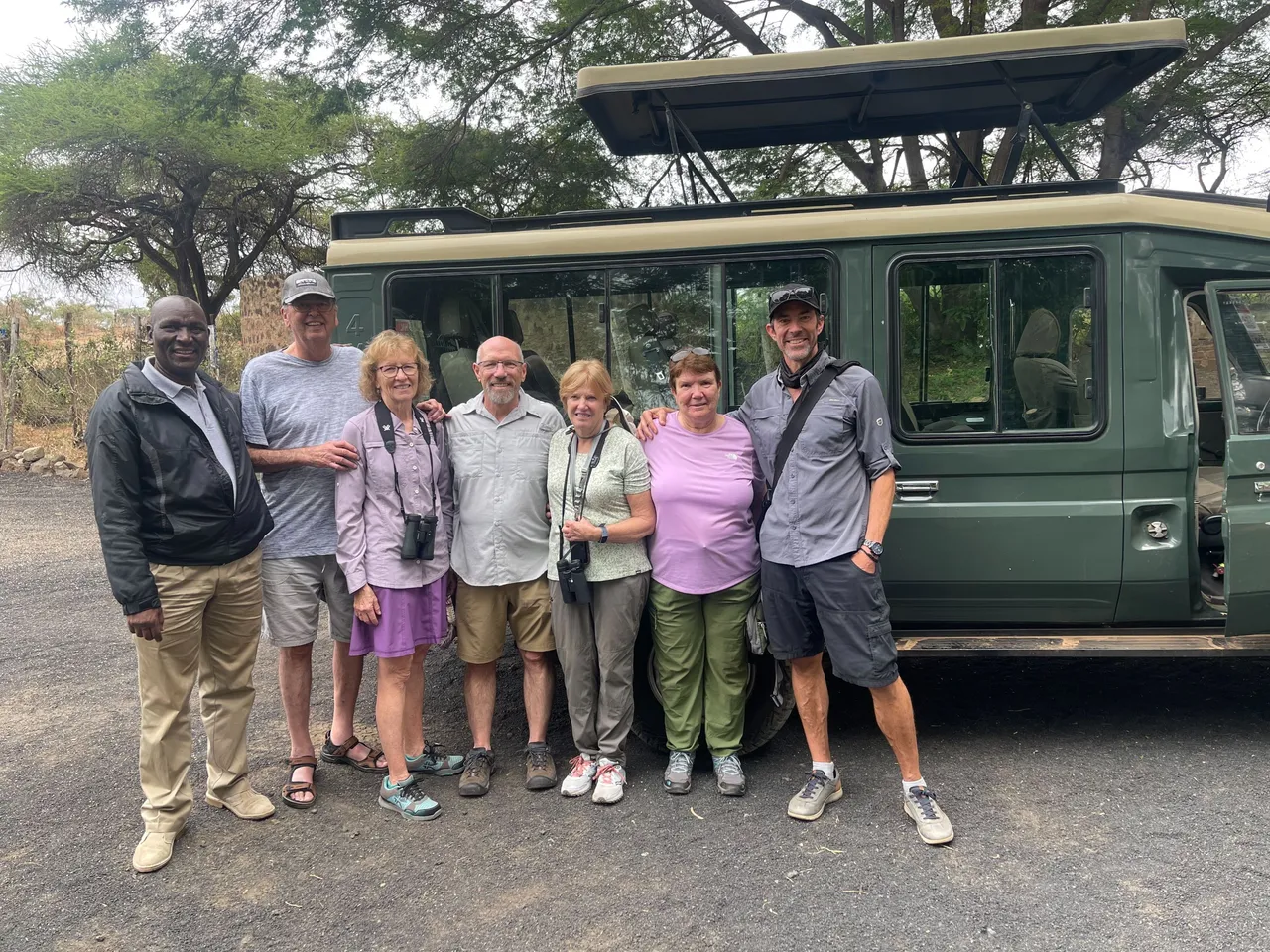
The team, thankful to get out and stretch our legs.
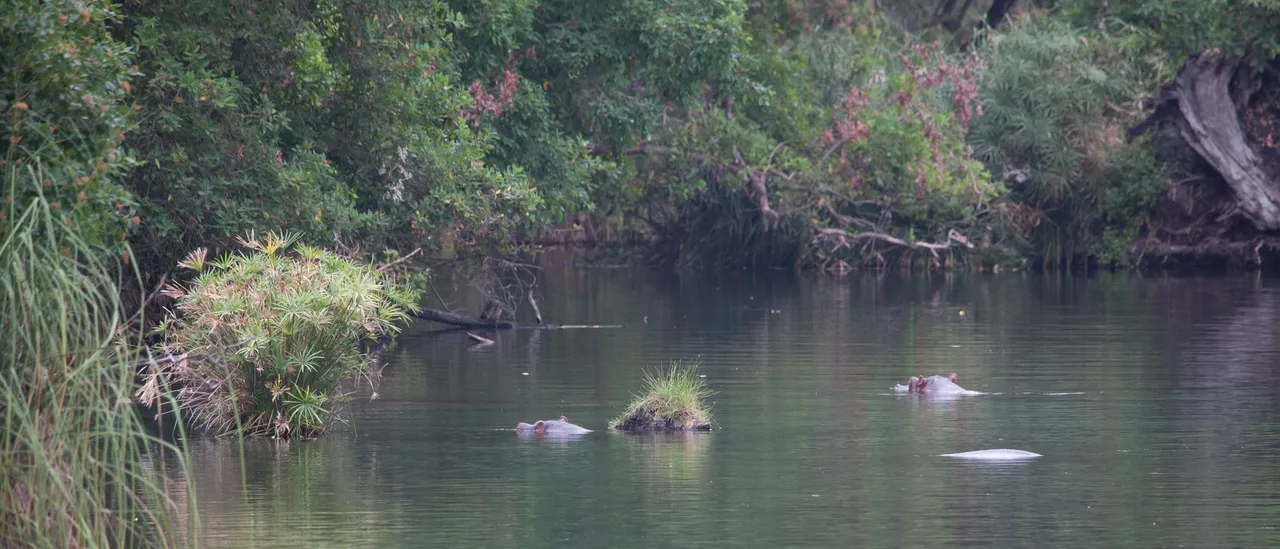
I see hippos.

Back at our lodge, wildlife still abounds. This is a rock hyrax hanging out on the rock wall between our rooms.
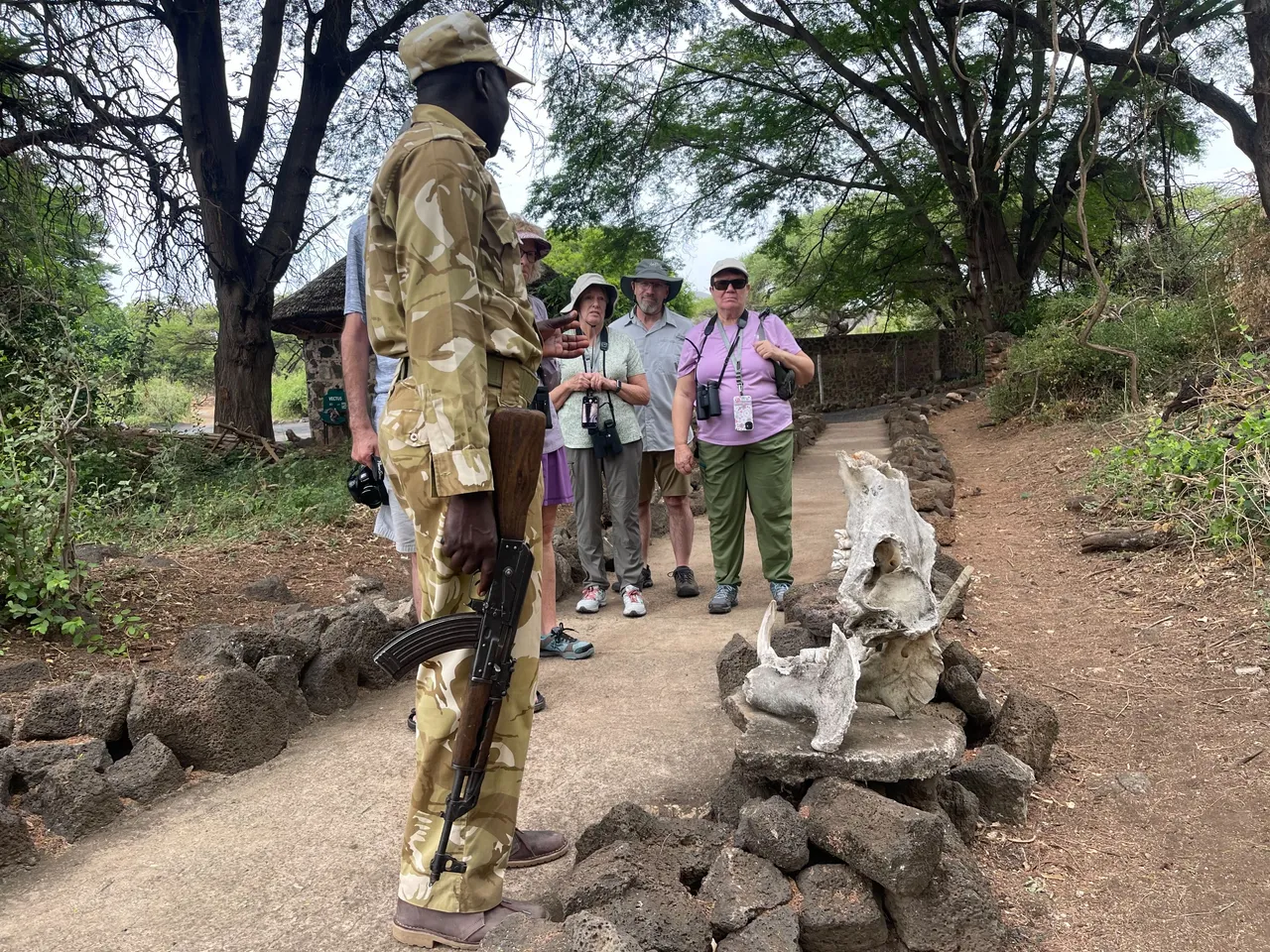
Our ranger guide at Mzima springs was very knowledgeable, but I'm not sure why he always had his finger on the trigger.
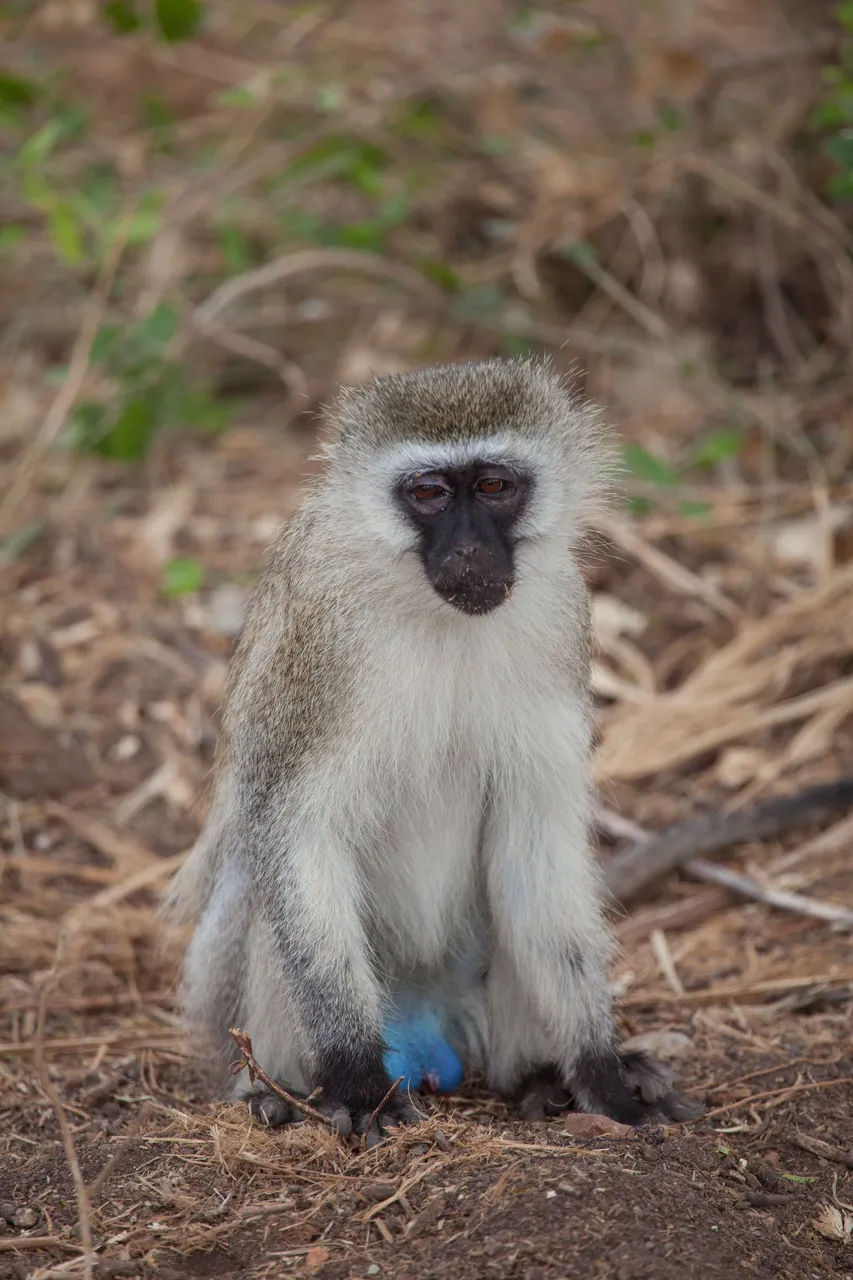
Vervet monkeys are also called 'blue balled monkeys'. I'm still trying to figure out why...

A panorama view from our lodge. Animals come out of the forest beyond in every direction to come visit the waterhole. I could just sit here and watch this all day.
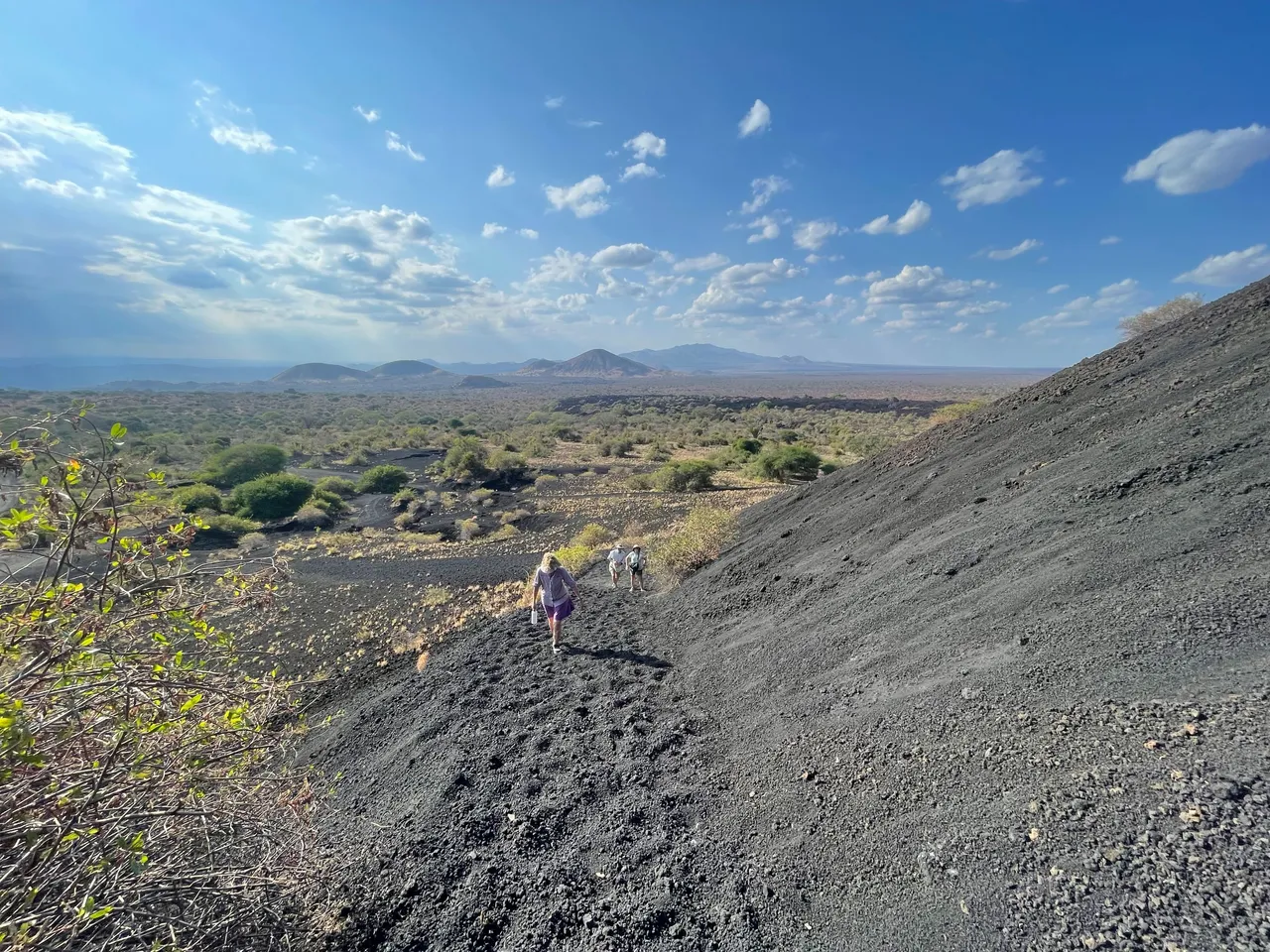
The hike up the cinder cone. Tiny pieces of lava rock slipped beneath our feet with each step.
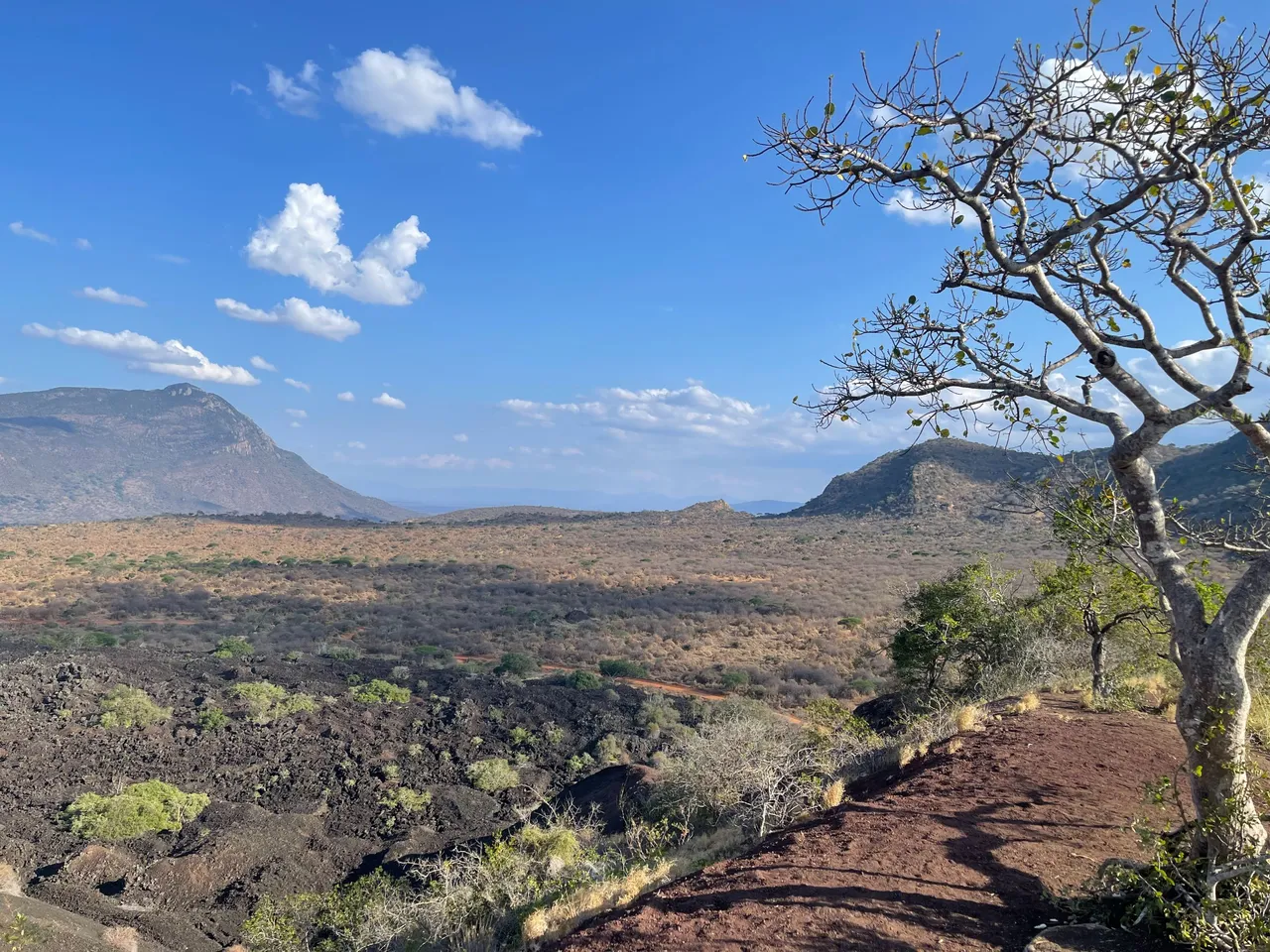
The view from the top was worth it. And the nice refreshing breeze coming up the other side of the hill.
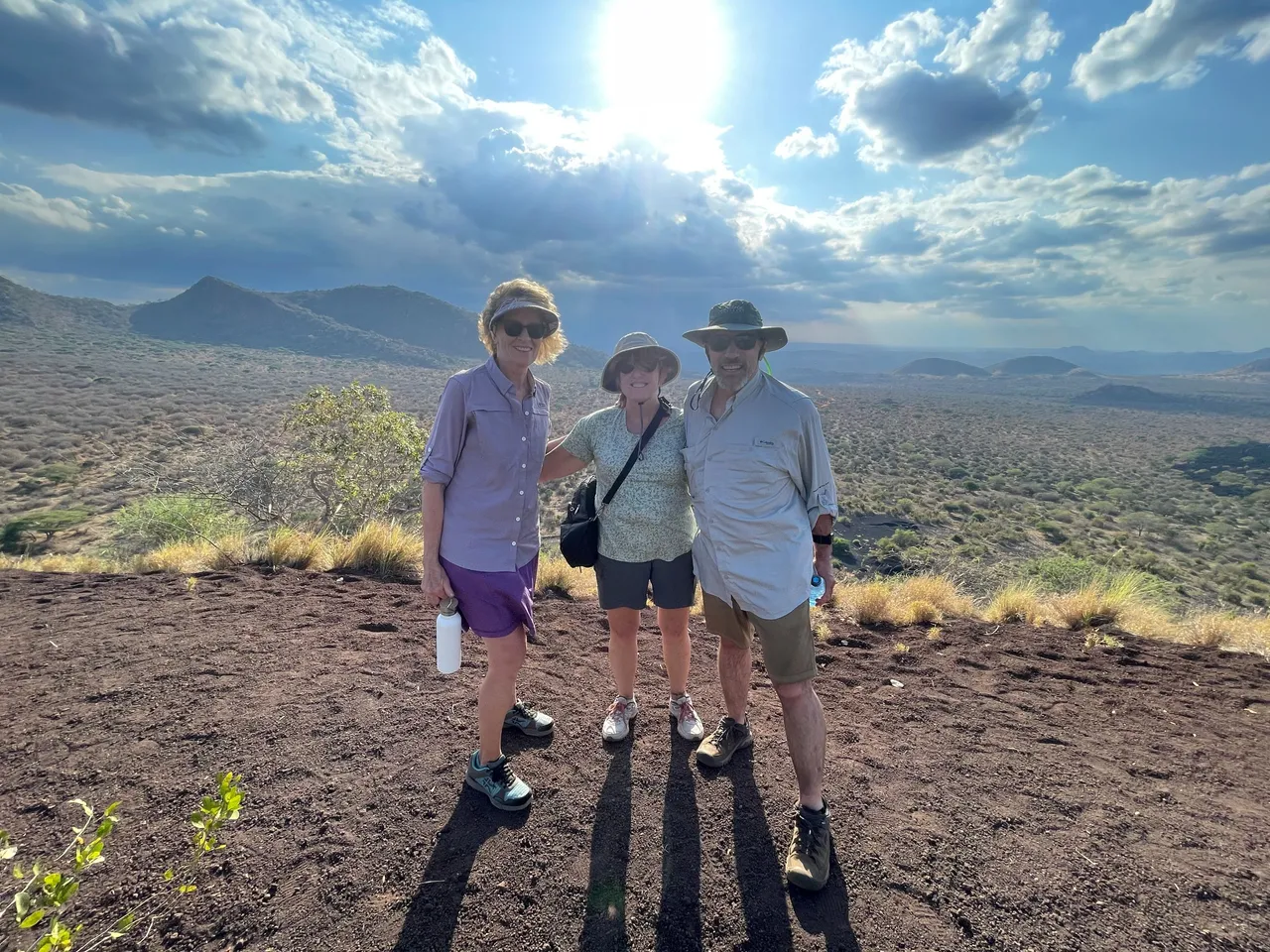
Team extreme, at the summit, taking in the view.
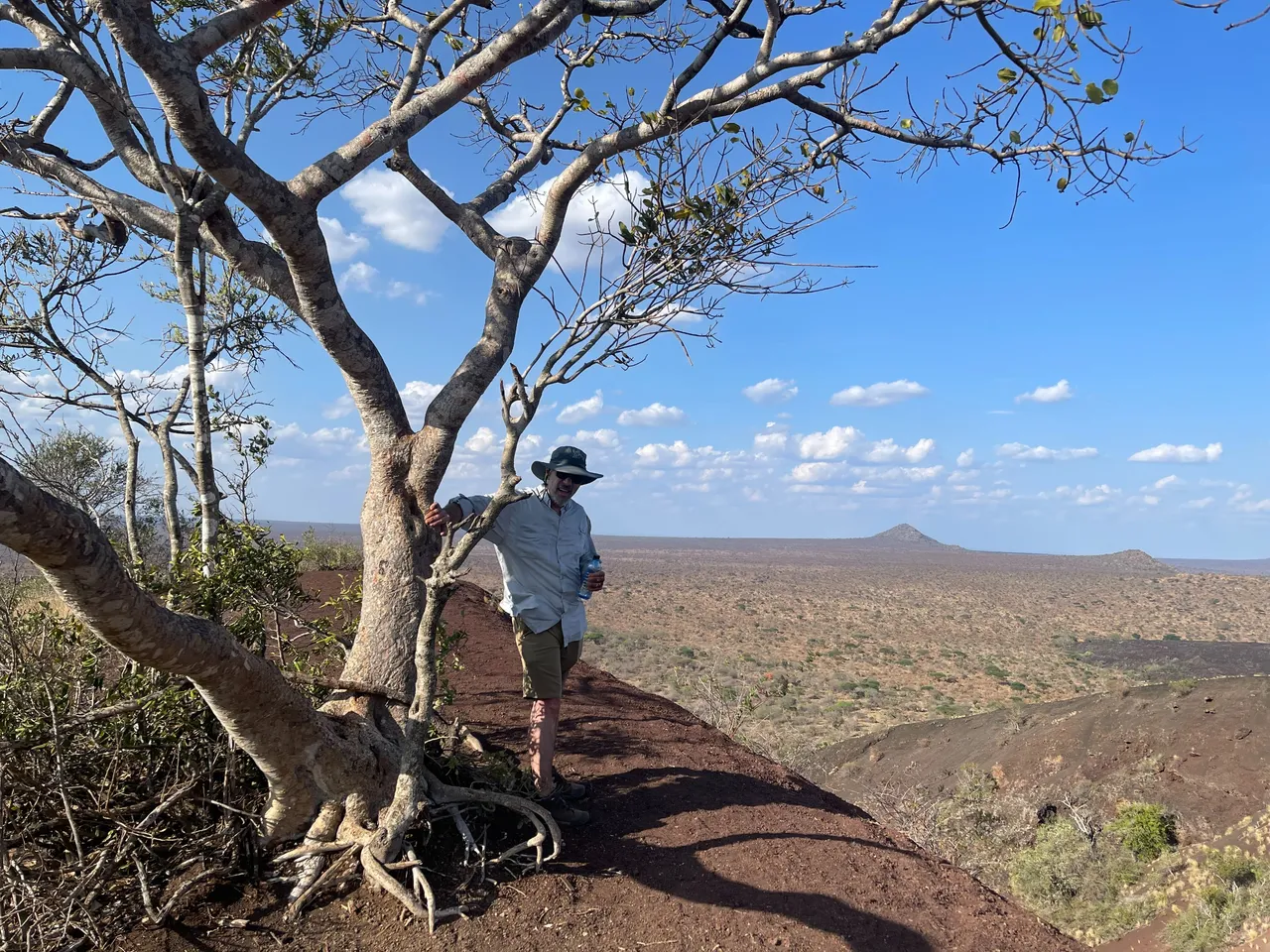
Finding the shade at the summit.
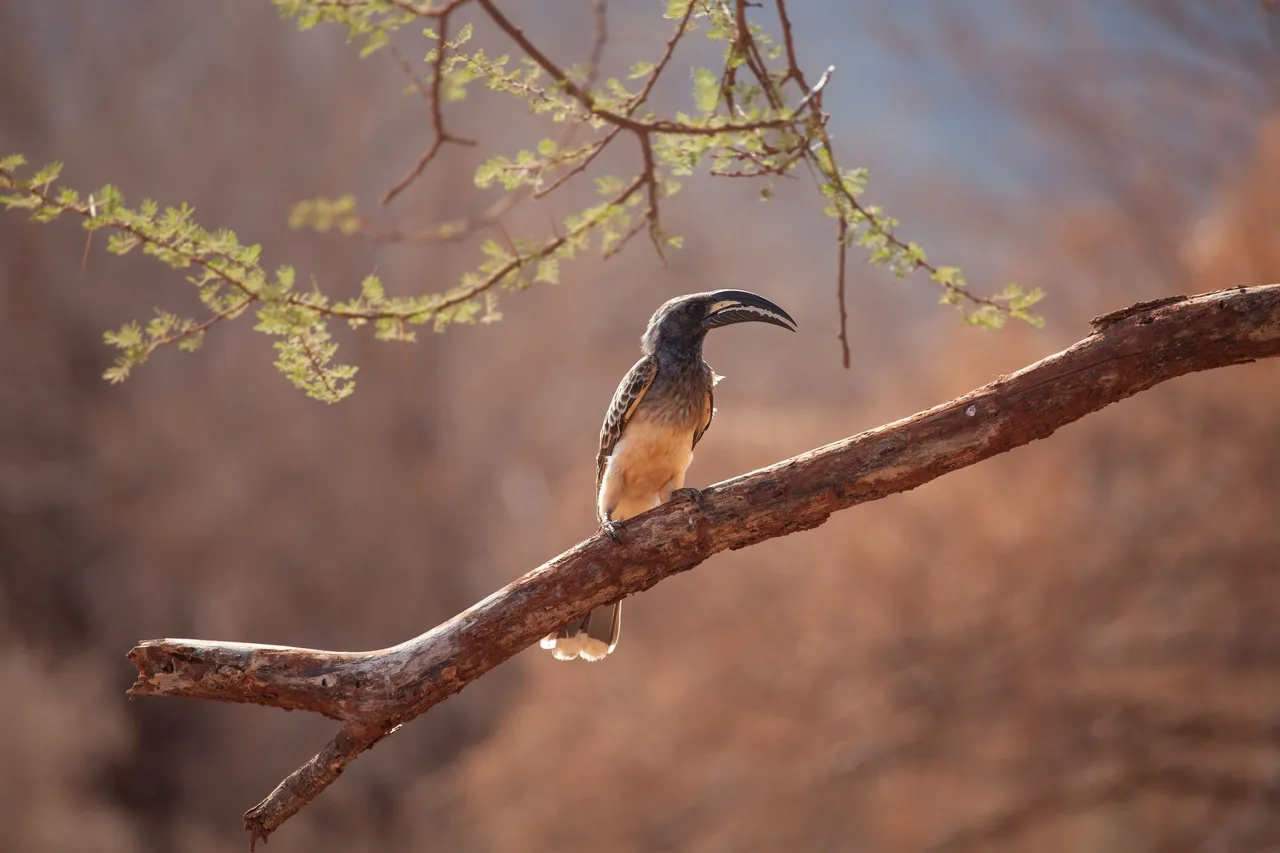
Juvenile hornbill in the late afternoon light.
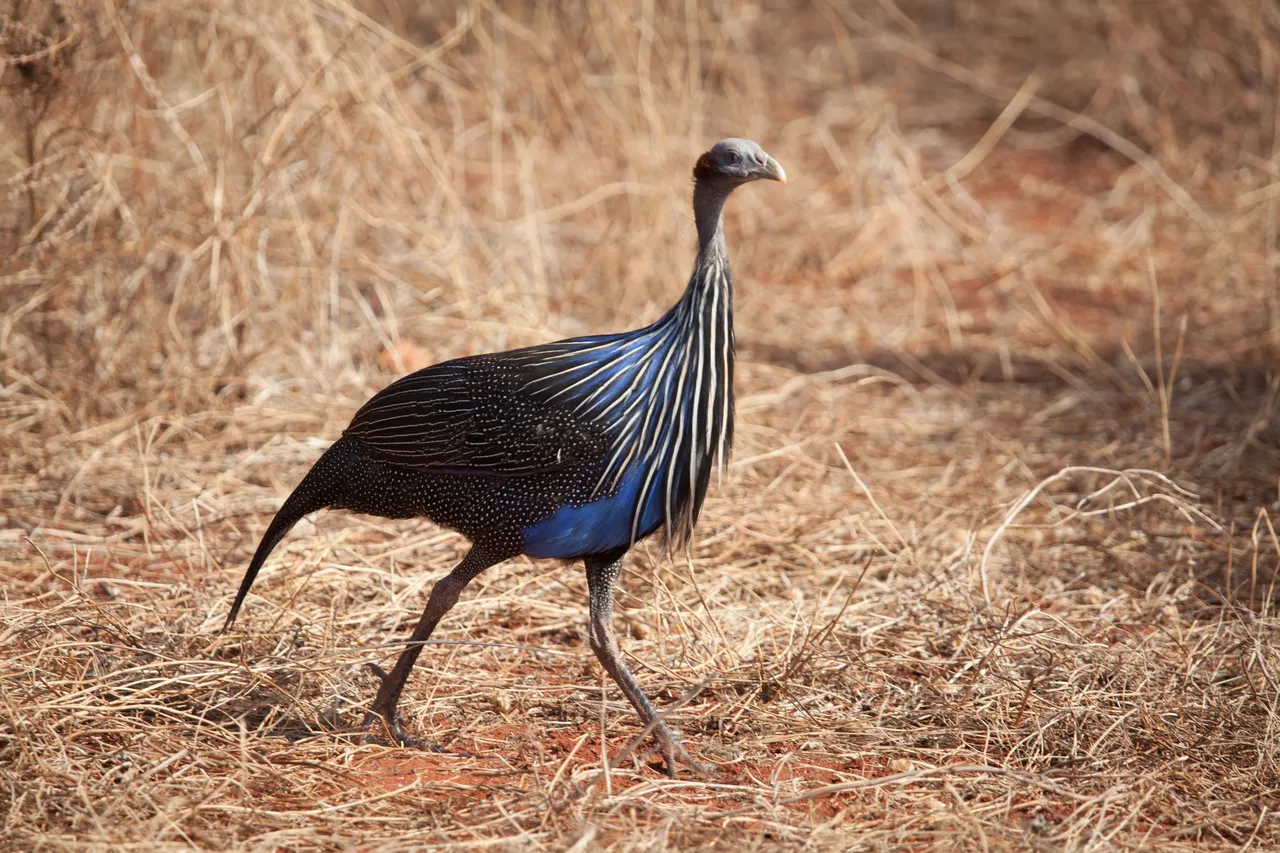
Vulturine guinea fowl with its beautiful blue feathers.

Yellow-throated francolins, perching perfectly for their photo.
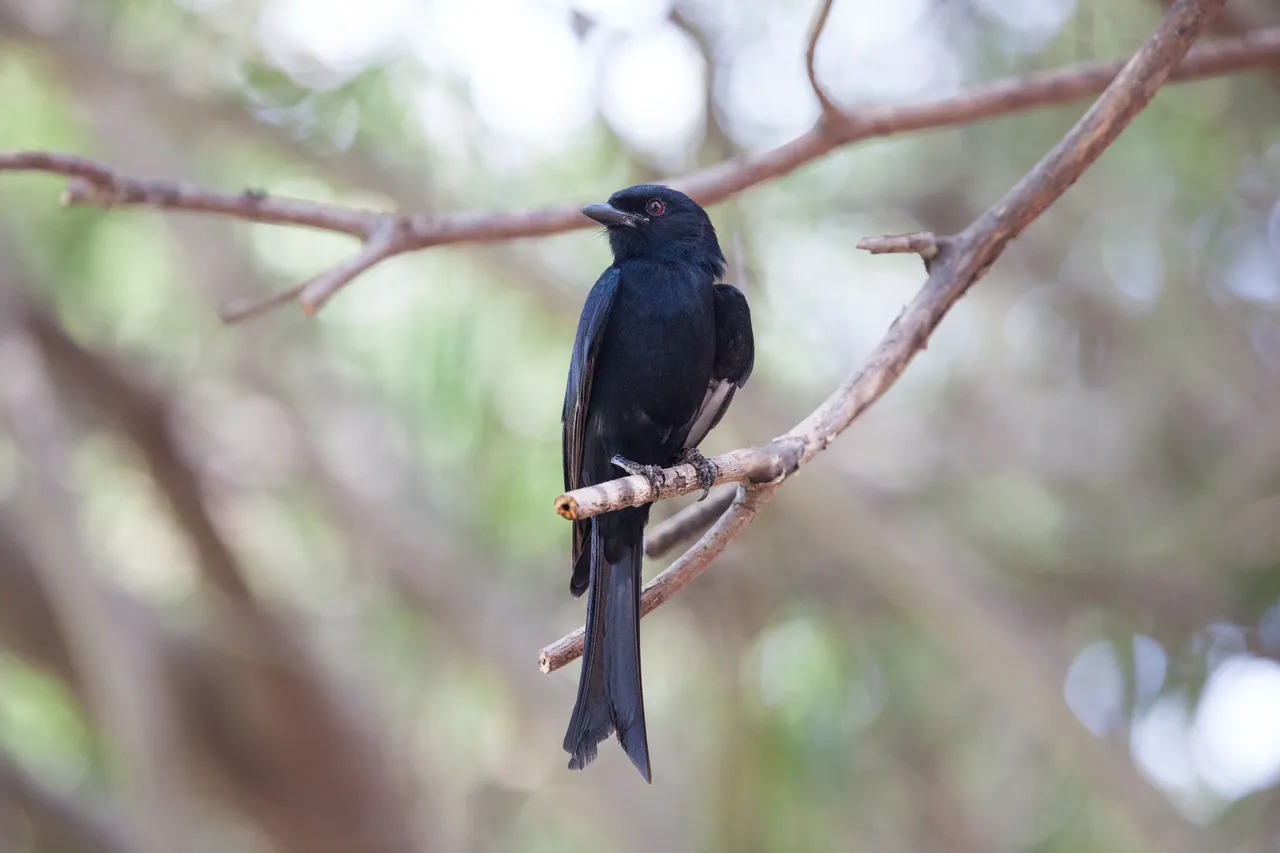
Fork-tailed drongo.
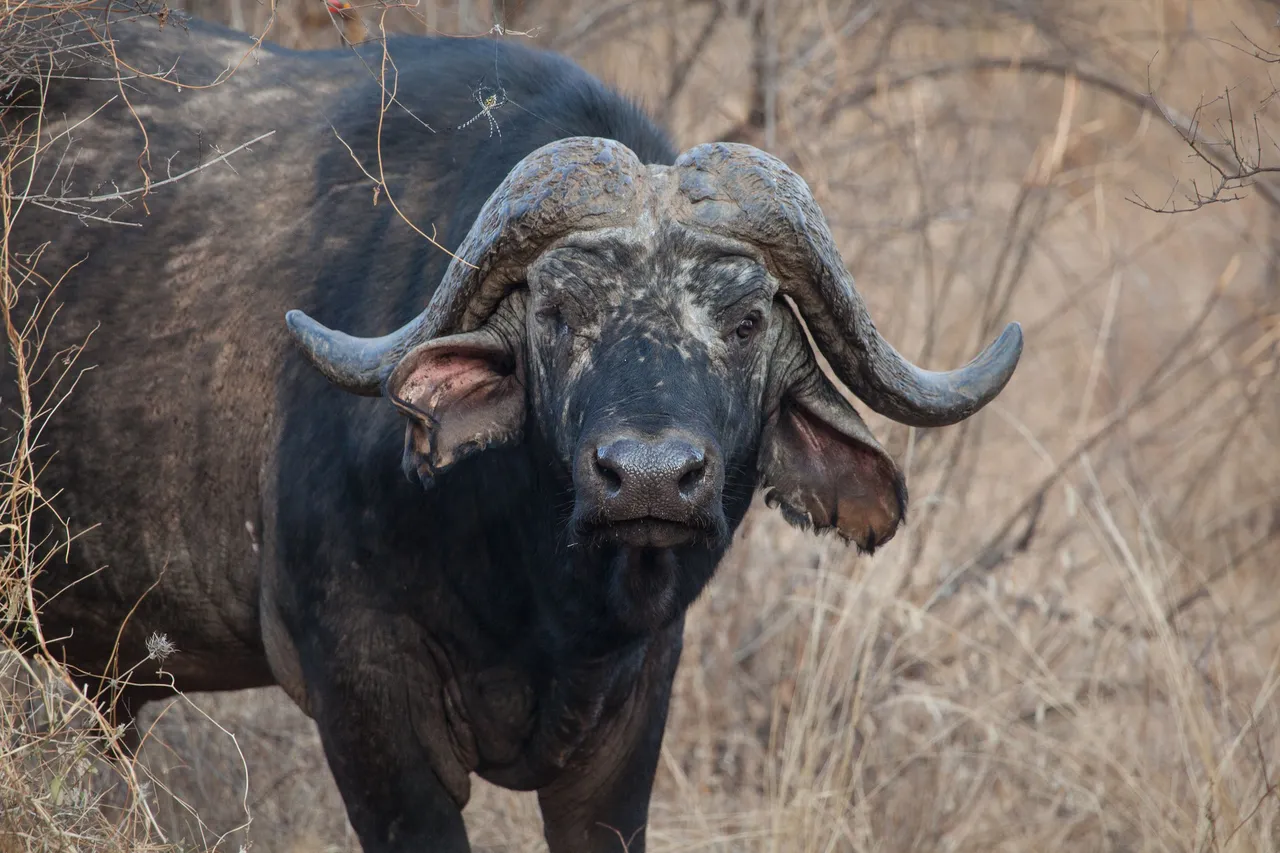
The ever-grumpy looking, but incredibly tough Cape Buffalo.
Check out the location of Mzima Springs here on worldmappin.com and their interactive blog map: [//]:# (!worldmappin -2.94089 lat 37.72612 long Mzima Springs d3scr)
And as always, keep traveling!
- Dai Mar
[//]:# ([//]:# (!worldmappin -2.94089 lat 37.72612 long Mzima Springs d3scr))